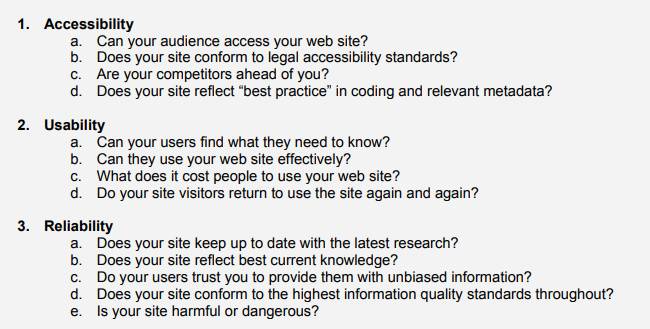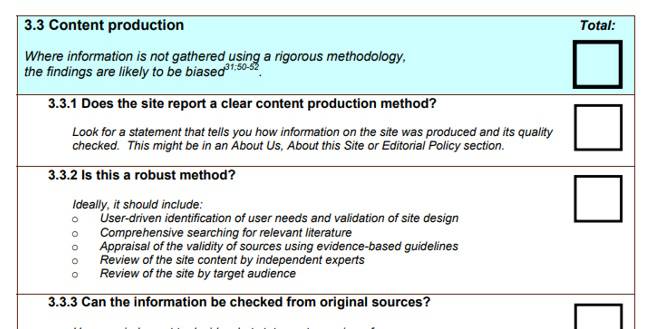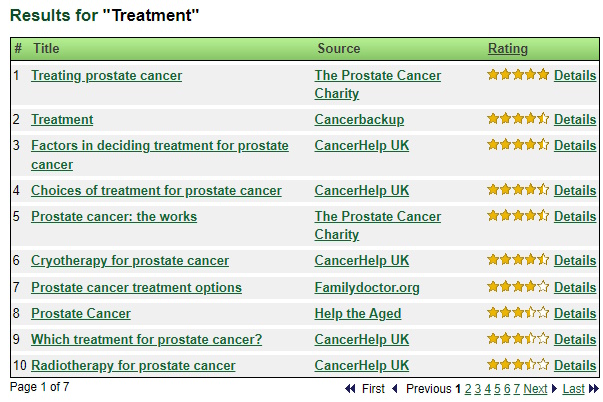The Lida Instrument
Lida is Minervation’s tool for assessing the quality of digital health information.
Lida is widely cited in the literature. It has recently been updated to take account of the latest Accessibility guidelines.


The Challenge
We developed Lida in the course of creating UK Prostate Link, the UK’s national prostate cancer website (2005-2012).
Our website audience told us that, rather than writing new content, they wanted to be able to rank search results of existing information by quality.
We conducted a literature review and research with end-users and stakeholders to identify the criteria for quality. We then validated the results with hands-on testing, comparing against popular search engines.
Having proven the concept, we then needed a consistent, transparent process for checking the quality of sources and storing them in a database.

We used Lida to compile a database of prostate cancer information, with the output ranked according to quality. For each link, we provided a “Details” sheet showing why a page had been given a particular score.
The Solution
Lida is an appraisal instrument that allows you to measure the quality of a health web site. It is freely available as an annotated PDF document (link below).
What does Lida measure?
Here’s what we mean when we talk about the quality of a health website:
- Accessibility
Is the information accessible to those who need it? - Usability
Can users make sense of it once they’ve got it? - Reliability
Is the information the website contains likely to be accurate?
Each of these domains is evaluated with a set of criteria.
How can it be used?
You can use Lida as:
- a qualitative guide to the strengths and weaknesses of a source
- a quantitative measure of quality to rank or compare many different sources
- a tool to assess individual pages or to assess a website as a whole.
What advantages does Lida have over other methods?
As far as we know, Lida is the only website validation instrument that deals appropriately with each of the three domains of quality identified by our literature and audience research.
Compared with most other approaches, it is user-friendly and less open to interpretation.
Finally, we believe that it is valid, showing inter-rater consistency.
What does “Lida” mean?
When we originally developed the tool, we thought about calling it “Minervalidation”. Because we’re all about validating the quality of information. Fortunately we came to our senses in time.
However, we couldn’t think of anything else so we just used the string “Lida”, because it conjoins Minervation and validation to make “Minervalidation”.
2018 Update
In 2018, the Web Accessibility Initiative released an update to its Accessibility guidance. Unfortunately, this rendered obsolete the first section of Lida.
This had been in the post for some time, as web technology moved on enormously in the intervening decade and a half.
So we updated Lida to take account of these new features, and focus on current coding practices and display technology.
Quality is still quality, though.